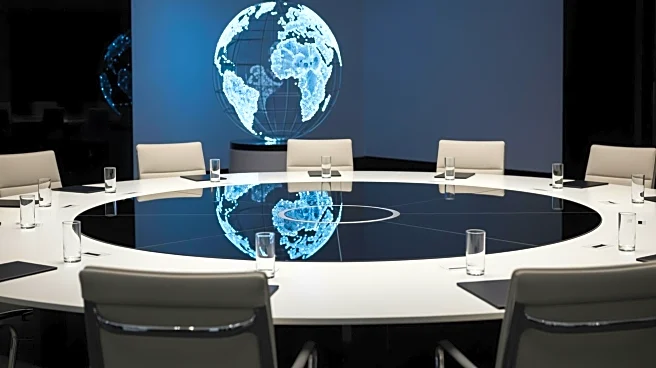What's Happening?
The United Nations Security Council has approved a US resolution authorizing an international stabilization force in Gaza, aimed at securing the territory and potentially paving the way for Palestinian
statehood. The resolution passed with a 13-0 vote, with Russia and China abstaining. The US plan includes the establishment of a transitional 'Board of Peace' and a stabilization force to oversee borders, provide security, and demilitarize Gaza. The resolution also suggests a future path to Palestinian self-determination, contingent on Gaza's reconstruction and Palestinian Authority reforms.
Why It's Important?
The resolution is a critical step in stabilizing Gaza and addressing the aftermath of the Israel-Hamas conflict. It provides a framework for international involvement in Gaza's security, potentially encouraging participation from Arab and Muslim nations. The plan's endorsement by the Security Council adds legitimacy to US efforts and may facilitate international cooperation. However, the resolution's lack of a clear timeline for Palestinian statehood and its perceived bias towards Israeli interests could hinder its acceptance by Palestinian factions.
What's Next?
The next phase involves deploying the stabilization force and establishing the Board of Peace. The US will engage in dialogue with Israel and the Palestinians to explore a political horizon for coexistence. The resolution's implementation will require coordination among international stakeholders, including Egypt and Israel. The success of the plan depends on the ability to disarm Hamas and ensure Gaza's security, which remains a contentious issue.
Beyond the Headlines
The resolution's passage could impact US relations with Arab nations and influence the Israeli-Palestinian conflict. The involvement of Muslim-majority countries in the stabilization force may foster regional cooperation, but the plan's perceived bias could exacerbate tensions with Palestinian factions. The initiative highlights the complexities of international peacekeeping and the challenges of balancing security with humanitarian needs.









